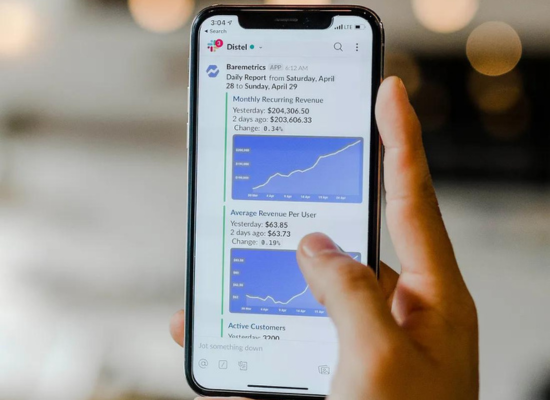Educating Bartenders Worldwide.
By Beverage Trade Network

Managing a bar in today’s competitive landscape involves more than just serving drinks and creating a vibrant atmosphere. The key to thriving in this industry lies in the intelligent use of data. From understanding customer preferences to optimizing inventory and enhancing marketing strategies, data-driven insights are transforming bar management, leading to increased efficiency, profitability, and customer satisfaction.
Data plays a pivotal role in modern bar management by providing actionable insights that help bar owners and managers make informed decisions. With the advent of sophisticated technology, bars now have access to a wealth of real-time data from various sources, such as point-of-sale (POS) systems, inventory management software, reservation platforms, and customer feedback tools. Leveraging this data enables bars to gain a comprehensive understanding of their operations, identify trends, and implement strategies that drive success.
Effective inventory management is crucial for maintaining profitability and ensuring smooth operations in a bar. Data helps bar managers track inventory levels, monitor usage patterns, and minimize waste. By analyzing inventory data, managers can identify which items are selling well and which are not, allowing them to adjust their ordering and stocking practices accordingly. This not only reduces the risk of overstocking or understocking but also helps in managing costs and maximizing profits.
For instance, inventory management software can provide detailed reports on the usage of each ingredient, highlighting discrepancies between expected and actual usage. This enables bar managers to pinpoint areas of potential theft, over-pouring, or wastage. By addressing these issues, bars can significantly improve their bottom line.

Source: Unsplash
Understanding customer preferences and behavior is essential for creating a memorable bar experience that keeps patrons coming back. Data collected from POS systems, customer reviews, and social media can offer valuable insights into customer preferences, allowing bars to tailor their offerings to meet guest expectations.
For example, POS data can reveal the most popular drinks and the time periods when they are ordered most frequently. This information can be used to design targeted promotions, such as happy hour specials or themed nights, to attract more customers during off-peak hours. Additionally, monitoring customer feedback on review sites and social media platforms helps bar managers identify common complaints and areas for improvement, enabling them to enhance the overall guest experience.
Data-driven marketing strategies are essential for attracting new customers and retaining existing ones. By analyzing customer demographics, preferences, and spending habits, bars can create targeted marketing campaigns that resonate with their audience. Social media insights, for instance, can provide detailed information about the age, gender, and location of a bar’s followers, allowing for more precise ad targeting.
Furthermore, data from reservation systems and loyalty programs can be used to identify frequent patrons and reward them with personalized offers and incentives. This not only fosters customer loyalty but also encourages repeat business. For example, a bar could send out a special discount to customers who have visited multiple times within a month or offer a complimentary drink to those celebrating their birthday.

Source: Unsplash
Keeping a close eye on financial performance is critical for the sustainability of any bar. Data helps bar managers track key financial metrics, such as revenue, costs, and profit margins, providing a clear picture of the business’s financial health. By regularly analyzing financial data, managers can identify trends, forecast future performance, and make informed decisions to improve profitability.
POS systems generate detailed sales reports that highlight the best and worst-selling items, allowing managers to adjust pricing and menu offerings accordingly. Additionally, tracking labor costs, rent, utilities, and other expenses helps in maintaining a tight control over the bar’s budget. By understanding the financial impact of each decision, bar managers can implement cost-saving measures and optimize resource allocation.
The consultancy Sculpture Hospitality states: “To ensure they are profitable, bars should keep track of profits, loss, cash flow and cost to analyze how they are performing on a consistent basis. Data points to look at should include; wages, revenue, recurring bills (such as rent and utilities), food cost, cash flow projections, profit, and the average cost per item.”
Data-driven insights are instrumental in streamlining bar operations and improving efficiency. For instance, POS systems can track the time taken to prepare each drink, helping managers identify bottlenecks in service and implement measures to speed up the process. This ensures that customers receive their orders promptly, enhancing their overall experience.
Moreover, data from employee performance metrics can be used to identify top performers and areas where additional training may be needed. By investing in staff development and recognizing exceptional performance, bars can foster a motivated and skilled workforce that contributes to the bar’s success.
As technology continues to evolve, the role of data in bar management is only set to grow. Emerging technologies such as artificial intelligence (AI) and machine learning (ML) are poised to revolutionize the industry by providing even deeper insights and predictive analytics. AI-powered tools can analyze vast amounts of data to identify patterns and trends that may not be immediately apparent, helping bar managers make proactive decisions.
For example, predictive analytics can forecast demand based on historical data and external factors such as weather or local events. This allows bars to optimize staffing levels and inventory in anticipation of busy periods, reducing costs and ensuring that customers receive the best possible service.
In the final analysis, the competitive world of bar management must treat data as an invaluable asset that can drive success. By harnessing the power of data, bar owners and managers can optimize inventory, enhance customer experience, refine marketing strategies, monitor financial performance, and streamline operations. The ability to make data-driven decisions empowers bars to stay ahead of the competition, improve profitability, and create memorable experiences for their patrons. As technology continues to advance, the importance of data in bar management will only increase, offering new opportunities for growth and innovation in the industry.
Header Image Source: Unsplash